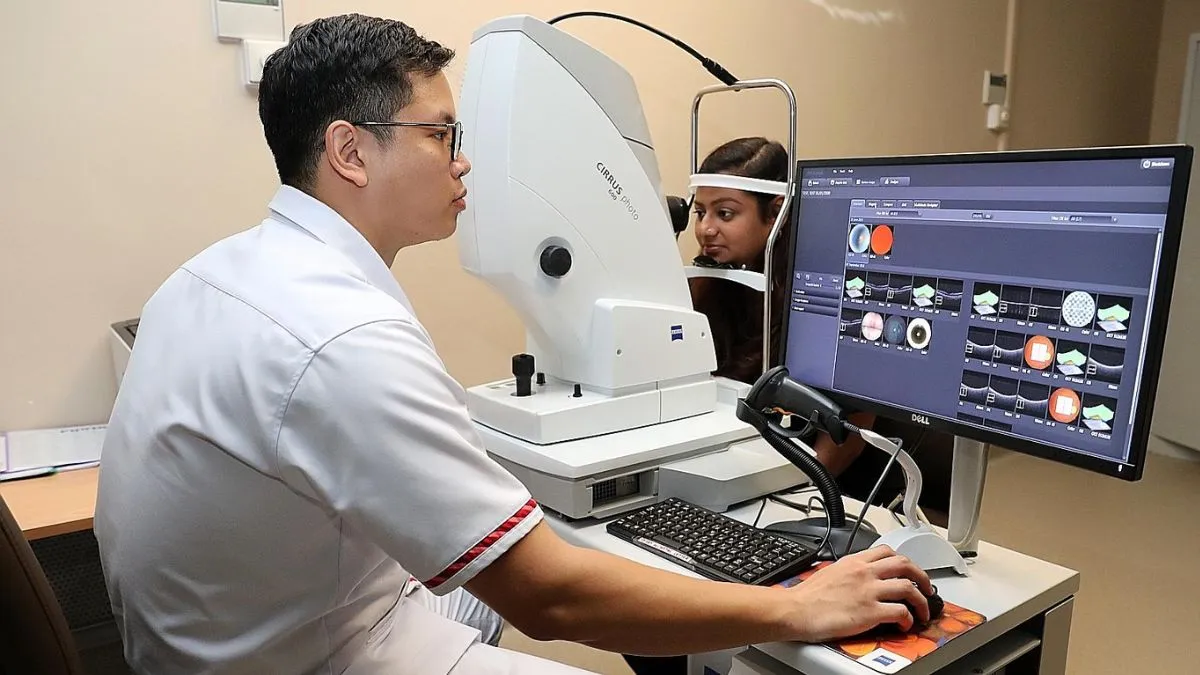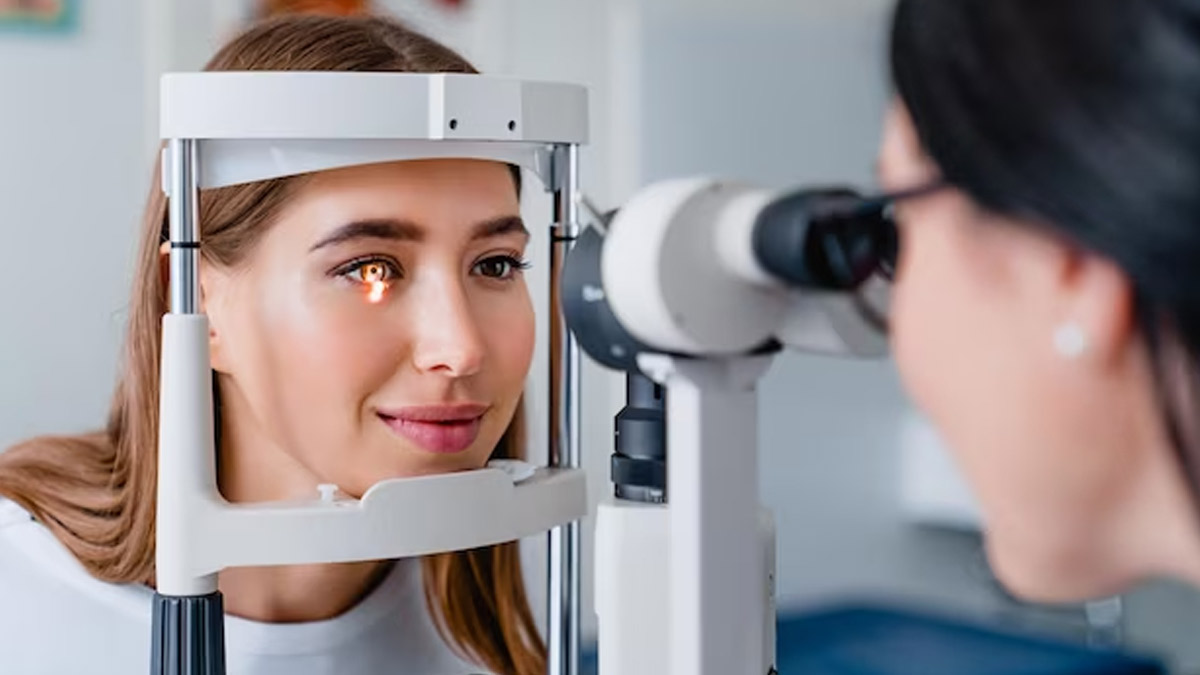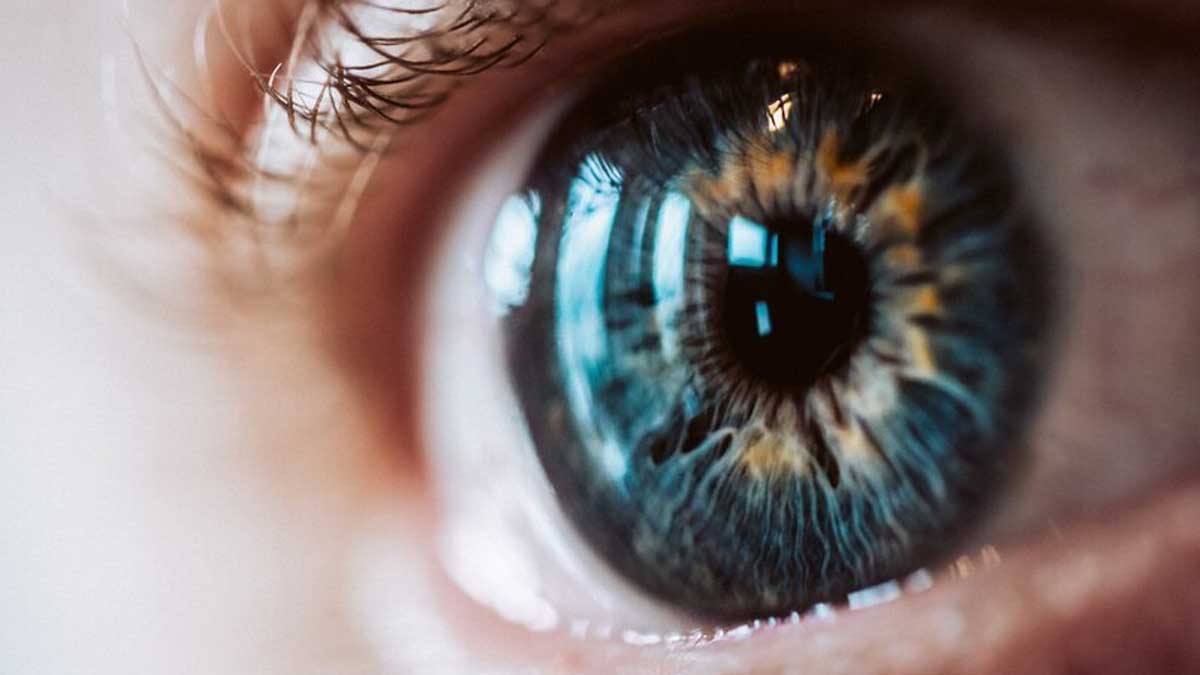
We often hear that our eyes are a window to our soul, but what if they could tell us more about our health? About your heart health, your arteries and how fast you’re ageing? The idea may sound surprising. Recent research has revealed that eye scans could give doctors important clues about our heart health and even how fast our bodies are ageing. This new approach could change how we detect serious conditions early on.
Table of Content:-
To understand more, we spoke with Dr Sanjay Bhat, Senior Consultant in Interventional Cardiology at Aster CMI Hospital, Bangalore, who explains the significance of these findings and how eye scans might benefit us all.
What The New Study Shows![]()
A recent large-scale study found that subtle changes in the tiny blood vessels of the eye may reflect cardiovascular risk and even biological ageing. In the study, researchers analysed retinal scans, genetic information and blood biomarker data from more than 74,000 people. They discovered that participants whose retinal blood vessels were “simpler” and less branched had a significantly higher risk of heart disease. These same individuals showed signs of accelerated ageing, including inflammation and biomarkers linked to shorter lifespan.
Reacting to the study, Dr Bhat explains, “The eye offers a unique, non-invasive glimpse into the body's entire vascular system. Changes seen in the retinal blood vessels often reflect what’s happening throughout the small blood vessels in the body, including those supplying the heart.” This means that retinal scans might reveal cardiovascular risk even before symptoms appear.
The advantage of eye scans is that they are quick, painless, and could potentially be part of regular health check-ups. Researchers hope that AI technology will allow these scans to provide personalised risk reports in real time, helping doctors tailor earlier interventions and advice.
ALSO READ: Early Menopause & Cardiovascular Health Link: Expert Shares Tips To Lower Risk
How Your Eyes and Heart Are Connected![]()
According to Dr Bhat, “The blood vessels in the retina are small and delicate, but they reflect the condition of blood vessels throughout the body. When these vessels show damage or changes, it can mean that similar problems are happening in the arteries of the heart.”
Here’s what that means in practice:
- The retinal blood vessels can show signs of narrowing or hardening, similar to what happens in coronary arteries.
- Inflammation or micro-damage seen in the retina may correlate with systemic vascular stress.
- Ageing-related changes, such as arterial stiffness, appear both in the retina and in the heart’s vessels.
“Retinal imaging has become a valuable tool for cardiologists because it can show early signs of poor circulation or inflammation without any pain or invasive tests,” Dr Bhat adds.
What This Means For Ageing![]()
“Ageing also affects both the heart and the eyes in similar ways,” explains Dr Bhat. “With time, reduced blood flow, oxidative stress, and stiffening of arteries can lead to faster ageing of body tissues. If these changes are visible in the eyes, they often mirror what is happening in the heart.”
So if an eye scan shows certain patterns, it may be a signal that your body’s ageing process is faster than expected. Some of the key signs include:
- Thinner or less branched retinal vessel networks.
- Increased biomarkers associated with vascular damage.
- Reduced vascular flexibility, which affects both ocular and cardiac circulation.
- Given this link, regular eye check-ups can serve double duty: protecting your vision and providing clues to your vascular ageing.
What You Can Do To Protect Your Heart—And Your Eyes
Dr Bhat recommends a combination of lifestyle and screening steps:
- Get regular heart health check-ups (blood pressure, cholesterol, lifestyle habits).
- Include an eye examination that looks beyond your vision—ask for retinal imaging if possible.
- Adopt heart-healthy habits: a balanced diet, regular physical activity, avoiding smoking, and managing stress.
- Talk to your doctor about “silent” risk: even if you feel fine, vascular changes may already be occurring.
- Consider the eye-heart connection: when eye doctors spot retinal vascular changes, it may warrant cardiovascular follow-up.
“Maintaining good heart health through exercise, a healthy diet, and controlling blood pressure and cholesterol can protect not just the heart but also the eyes and slow the ageing process,” says Dr Bhat.
ALSO READ: Can Snoring Increase Your Risk of Heart Attack? Here Is What Expert Says
Conclusion
Eyesight may be what brings you into the eye doctor’s chair—but the deeper story the eyes may tell is about your heart and the health of your arteries. As research continues to unfold, paying close attention to both eye and heart health becomes smarter than ever. If a routine eye scan reveals more than just vision issues, it could offer an early warning and a chance to protect your long-term health.
Also watch this video
How we keep this article up to date:
We work with experts and keep a close eye on the latest in health and wellness. Whenever there is a new research or helpful information, we update our articles with accurate and useful advice.
Current Version
Nov 08, 2025 15:07 IST
Published By : Chanchal Sengar


